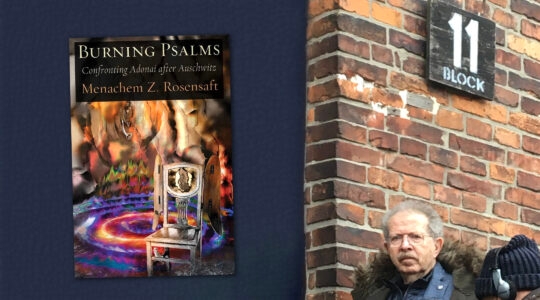The president of the Palestinian Authority, Mahmoud Abbas, has an Op-Ed in The New York Times today calling on "all friendly, peace-loving nations to join us in realizing our national aspirations by recognizing the State of Palestine on the 1967 border and by supporting its admission to the United Nations."
Plenty of Jewish groups and pro-Israel activists will argue that such an approach will end up setting back peace efforts by giving the Palestinians something for nothing. But the more passionate objections are likely to revolve around Abbas’ take on how we got into this mess in the first place:
It is important to note that the last time the question of Palestinian statehood took center stage at the General Assembly, the question posed to the international community was whether our homeland should be partitioned into two states. In November 1947, the General Assembly made its recommendation and answered in the affirmative. Shortly thereafter, Zionist forces expelled Palestinian Arabs to ensure a decisive Jewish majority in the future state of Israel, and Arab armies intervened. War and further expulsions ensued. Indeed, it was the descendants of these expelled Palestinians who were shot and wounded by Israeli forces on Sunday as they tried to symbolically exercise their right to return to their families’ homes.
Minutes after the State of Israel was established on May 14, 1948, the United States granted it recognition. Our Palestinian state, however, remains a promise unfulfilled.
Over at The Atlantic, Jeffrey Goldberg has already responded:
There is no particular reason to hope for a successful peace process when the leader of the Palestinians is selling a false history of Israel’s independence. …Reaching a successful settlement of this dispute will require both sides, Arab and Israeli, to grapple with their mistakes. Mahmoud Abbas cannot bring himself to note that the Jews accepted the partition plan, while the Arabs rejected it, and went to war to extinguish the new Jewish state in the cradle, and then lost their offensive war. During this war, many Arabs were expelled from Palestine by Israeli forces; many others fled. This is not a unique historical event; most wars cause massive population dislocations. It is worth noting that some Jews, a smaller number, were also expelled from their towns and farms by Arab forces. Larger numbers of Jews — 800,000 — were subsequently expelled from Arab countries, where they and their ancestors had lived for hundreds, even thousands, of years. These Jews are not considered refugees today because they were taken in by Israel and given citizenship. The Arab refugees from Palestine were not treated nearly so well by their brethren.
Feels like there’s a good column here for the NYT’s public editor: How much leeway should the paper give a public figure when it comes to bending — or ignoring — facts in an opinion piece?
JTA has documented Jewish history in real-time for over a century. Keep our journalism strong by joining us in supporting independent, award-winning reporting.





